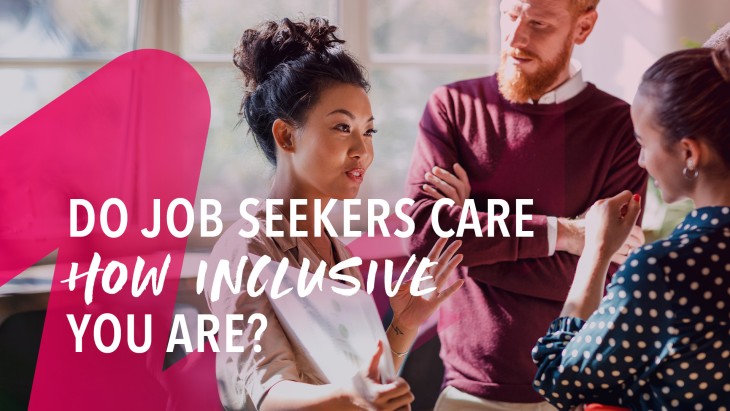
Is being inclusive an asset to attract employees?
How much time and effort does your company invest in environmental, social and governance issues, a.k.a. ESG? It’s definitely one of the most talked about topics in the contemporary business world.

How much time and effort does your company invest in environmental, social and governance issues, a.k.a. ESG? It’s definitely one of the most talked about topics in the contemporary business world. All over the world, companies and organizations are increasingly responding to the growing demand of investors, citizens and employees to do the right thing - for the planet and its inhabitants.
In addition to this moral pressure, there is increasing pressure from legislators and governments who require the business world to take care of the world in all its aspects. And increasingly, organizations are doing just that: they are being sustainable in many ways, trying to keep their energy emissions low and ensuring more inclusiveness in their workforce. Not at random: they establish strict mission statements and programs. And they make them public through reports and public relations campaigns.
Inclusivity is an important part of ESG. At its core is that anyone can come to work for your organization, regardless of gender, ethnicity, sexual orientation or migration background.
But is being inclusive really a weapon in the war on talent? In other words, do you really attract employees by constantly shouting it from the rooftops?
Well, according to a survey House of HR conducted among 1,000 people in Belgium, Germany, France and the Netherlands, the answer is a plain and simple yes. In France, a staggering 70% of people consider a company’s image in terms of inclusion important when looking for a new employer. In Belgium, it’s 68%, in the Netherlands 62% and in Germany 59%.
In total, inclusion means a lot to almost 65% of the people, or one in three.
One in three is quite a lot. But do you explicitly state in your job posting that you value inclusiveness? Let’s look at some more detailed numbers.
- 68.5% find it important that a new employer mentions ‘equal opportunities’ in its vacancy. (That’s 74% in France, 68% in Germany and 66% in both Belgium and the Netherlands.)
- 42% also like to see the mention ‘M/F’ with a job. (54% of the French, 46% of the Belgians, 36% of the Dutch and only 32% of the Germans.)
- To 37%, the mention of ‘M/F/X’ - an additional indicator of how the organization thinks about gender - is important. (45% in France, 41% in Belgium, 31% in Germany and 29% in the Netherlands.)
So, to mention or not to mention? Unfortunately, there’s no easy answer.
If, like in France, almost three-quarters of the people would apply for your organization because you mentioned ‘equal opportunities’, surely you should consider mentioning it. But if like in the Netherlands, not even one in three find it important to mention they might as well hire a gender-neutral person, it’s entirely up to you: does your organization want to make a statement or not?
